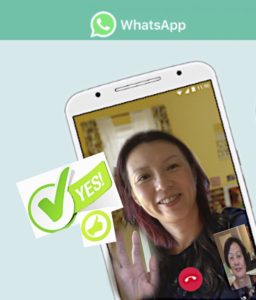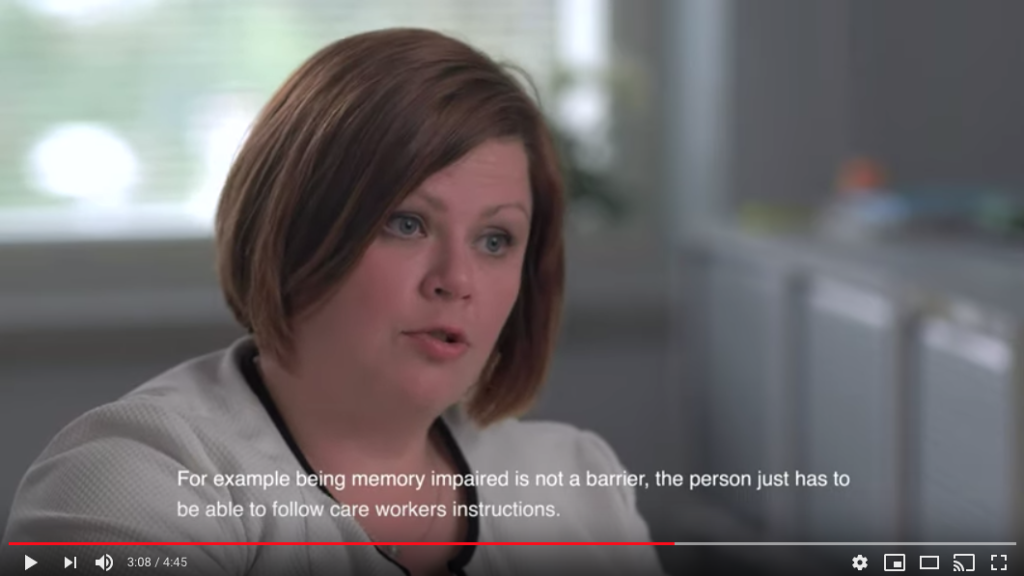Rementia, social wellbeing, technology, and people with cognitive impairment

Connection and social wellbeing are fundamental to one’s quality of life.
I am a big supporter of the above. After the passing of my father, my mum lived with my late-grandparents and became their primary caregiver. Since their passing, she has been complaining about loneliness. Short of getting her to a match-making agency or to be on Tinder to find her a partner, she sold her flat and moved to a studio apartment with a Senior Activity Centre (SAC) on the ground floor. She is a friendly person and has made friends with her neighbours at the SAC fairly quickly. I thought that with neighbours whom she could meet and socialise with on a daily basis, her complaints would stop as during my growing up years, she was happy popping by our neighbours’ houses for hours or going around the neighbourhood chit-chatting with the shopkeepers and hawkers. Still, my mum complains about how little she sees us. Granted, she used to see my late-grandparents every few days as they were living at the block opposite us when we were growing up. Guilty as charged, in between work, overseas trips, exercise regimes, parenting commitments, and life, we meet once a month or so over lunch or dinner plus a few phone calls here and there. Her complaints are valid. Being a problem-solver, I conceived the idea of virtual get-togethers since we aren’t ‘next-block’ neighbour. My idea: via video calls, she would be able to see my face and I would be able to see hers too while talking to each other instead of the current phone calls when we could just hear each other’s voice. I’ve proceeded to wire her house with WiFi network and tried to teach her to use an iPad for FaceTime so that we can see each other while talking. With her mild cognitive impairment, the project has been on-going for more than six months… but without success. She would be able to receive and answer my FaceTime calls when I was physically there with her (during our trial runs). We had tested the Facetime calls over the iPad several times on different days. Yet, whenever I FaceTime video-call her from my home, I had not been successful in getting her to pick up my call. Reasons that she gave: the iPad did not ring or the iPad could not be turned on despite being connected to the electric socket, thus, being charged. I am muffled and disheartened. I was on the verge of giving up on my dream about communicating with my mum on daily basis using video calls when I read the Economist article on how Finland is tapping on technology to help frail older people live at home for longer. Finland is currently using virtual home visits, pill-dispensing robots and many more – even with people with dementia
Let me quote a paragraph that I had read in the article and got me interested:
“In a grey office building on the outskirts of Helsinki, a chatty social worker is meeting six elderly people from around town for lunch—via tablets propped on their kitchen tables. For the next half-hour, she talks to them about their day and reminds them to have something to drink, because dehydration is particularly dangerous for older people (making them more prone to falls, among other things). Glasses of milk and water are duly raised.” “The virtual lunch group is part of Helsinki’s remote-care programme for its elderly. While many countries with bulging elderly populations are building new care homes, Finland is not planning to do so and, instead, is looking after people in their own homes for longer—even those with dementia… Social isolation, however, is a big problem for the elderly because it leads to faster cognitive and physical decline. To deal with that, Helsinki runs virtual get-togethers for its homebound elderly that include quizzes, chair exercise classes, sing-alongs, book clubs and a religious discussion led by a priest.” (Source: https://www.economist.com/europe/2020/01/09/finland-turns-to-technology-to-help-frail-old-people-live-at-home)
The thought that came to my mind after reading the article: “OMG! This was totally the vision that I had for my ‘Teach Mum FaceTime project’!!!” I became very excited. Being curious, as I am, I did my research and read more about Finland’s aged-care initiatives. Here are a few resources that I’ve found:
- https://www.todayonline.com/singapore/finland-seniors-are-vip-clients-who-get-take-nurses-out-coffee
- https://www.videovisitglobal.com/wp-content/uploads/2017/02/VideoVisit_Virtual-Care_City-of-Helsinki-Service-Centre_MWC-release.pdf
- https://eemingtoh.exposure.co/why-finland-wears-its-title-of-being-the-small-giant-in-healthcare-with-pride
- https://www.youtube.com/watch?time_continue=206&v=4nQ_h9kiHms&feature=emb_logo

I have, since, decided to push on with my ‘Teach Mum FaceTime project’, with some variations. As Einstein had said, “Insanity is doing the same thing over and over again, expecting different results”. Being a big fan, I buy that. So, I’ve decided to use the video call function on WhatsApp instead of the FaceTime video call on iPad. Reason: My mum is never an Apple user, her mobile phone is Samsung. I was too ambitious by getting her to learn and get used to a new gadget, the Apple operating system and new buttons. It will be more reasonable to simply use something that she is relatively familiar with. She has been using WhatsApp for some time with some success. There would be times that she would not receive our WhatsApp messages or calls, but generally, she does. Let me share with you her latest WhatsApp incident. I’ve sent her a WhatsApp message in mid-dec 2019 before I left for my trip. From my screen, I could see that the message did not reach her and there was only one tick. When she stayed over my house on the Chinese New Year weekend, I checked her phone. To my surprise, the WhatsApp app was deleted from her phone! It’s no wonder that she has not been active on WhatsApp. Who has deleted the app on her phone? How was the app being deleted? These questions remain a mystery as my mum said her usual “I don’t know”. I had since re-installed WhatsApp on her phone, taught her and practised the video call function with her… and keeping my fingers crossed…
And yes, I just tested it. I video-called her via WhatsApp… And… She successfully picked up my video call and looked happy talking to me. Yay! This is our small win… our little success to start this new decade with!
To my readers out there, technology can indeed aid connection and social wellbeing. In addition, people with memory impairment can be taught to use technology that they are familiar with. This could be particularly useful for this period of time with the coronavirus outbreak resulting in the cancellation of mass gathering and possible volunteer visits which, in turn, leads to more social isolation. As we start a new decade, instead of dementia, let us adopt a new noun – Rementia. Quoting from traceymaxfield.com: “Rementia enables us to give back the skills and abilities that the person has lost or had taken away due to being labelled as having dementia. In a nutshell, dementia says the person with dementia cannot; rementia says the person with dementia can!”